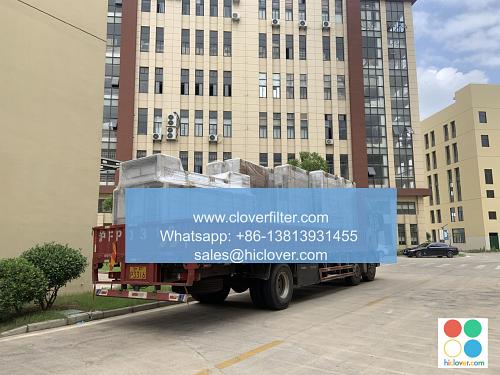Air Filter Technology for Sustainable Agriculture

The world of agriculture is undergoing a significant transformation with the integration of cutting-edge air filter technology. This innovative approach is revolutionizing the way we grow crops, reduce waste, and promote environmental sustainability. In this article, we will delve into the realm of air filter technology for sustainable agriculture, exploring its applications, benefits, and future prospects.
Introduction to Air Filter Technology
Air filter technology involves the use of advanced filtration systems to remove pollutants, dust, and other airborne contaminants from the air. In the context of sustainable agriculture, air filters play a crucial role in maintaining optimal growing conditions, reducing crop stress, and promoting healthy plant growth. By leveraging nanofiltration, ultrafiltration, and activated carbon filtration techniques, farmers can create a more favorable environment for their crops, resulting in increased yields and improved food quality.
Application Areas of Air Filter Technology in Sustainable Agriculture
The applications of air filter technology in sustainable agriculture are diverse and multifaceted. Some of the key areas include:
-
Greenhouse Climate Control
: Air filters help regulate temperature, humidity, and CO2 levels in greenhouses, creating an ideal environment for plant growth. By using **hepa filtration** and **uv purification**, farmers can minimize the risk of disease and pests, while also reducing energy consumption.
-
Crop Protection and Pest Control
: Air filters can be used to remove pollen, dust, and other airborne particles that may carry diseases or pests. This approach helps reduce the need for **chemical pesticides** and **herbicides**, promoting a more **organic** and **eco-friendly** farming practice.
-
Soil Conservation and Erosion Prevention
: Air filters can help reduce soil erosion by minimizing the amount of airborne particles that settle on the soil. This technique is particularly useful in areas prone to **dust storms** and **soil degradation**.
-
Livestock Farming and Animal Health
: Air filters can be used to improve the air quality in livestock farms, reducing the risk of respiratory diseases and promoting animal health. By using **air purification systems**, farmers can create a healthier environment for their animals, resulting in improved productivity and reduced mortality rates.
-
Improved Crop Yields
: By creating an optimal growing environment, air filters can help increase crop yields and improve food quality.
-
Reduced Environmental Impact
: Air filters can help reduce the environmental impact of farming by minimizing the use of chemical pesticides and herbicides.
-
Increased Energy Efficiency
: By regulating temperature and humidity levels, air filters can help reduce energy consumption in greenhouses and other agricultural facilities.
-
Enhanced Food Safety
: Air filters can help reduce the risk of foodborne illnesses by removing airborne contaminants and pollutants from the air.
-
IoT-Enabled Air Filtration Systems
: The integration of **Internet of Things (IoT)** technology with air filtration systems is expected to revolutionize the way we monitor and control air quality in agricultural settings.
-
Biotechnology and Nanotechnology
: The use of **biotechnology** and **nanotechnology** in air filter development is expected to lead to more efficient and effective filtration systems.
-
Artificial Intelligence and Machine Learning
: The application of **artificial intelligence (AI)** and **machine learning (ML)** in air filter technology is expected to enable predictive maintenance, improved system performance, and optimized air quality control.
Benefits of Air Filter Technology in Sustainable Agriculture
The benefits of air filter technology in sustainable agriculture are numerous and significant. Some of the key advantages include:
Future Prospects and Emerging Trends
The future of air filter technology in sustainable agriculture looks promising, with emerging trends and innovations on the horizon. Some of the key areas to watch include:
In conclusion, air filter technology is poised to play a vital role in the future of sustainable agriculture. By leveraging cutting-edge filtration systems and emerging trends, farmers can create a more favorable environment for their crops, reduce waste, and promote environmental conservation. As the world of agriculture continues to evolve, it is essential to stay informed about the latest developments and innovations in air filter technology.
It seems like you didn’t include a prompt for me to respond to. Could you please provide more details or ask a question? I’m here to help with any information or tasks you need assistance with.

